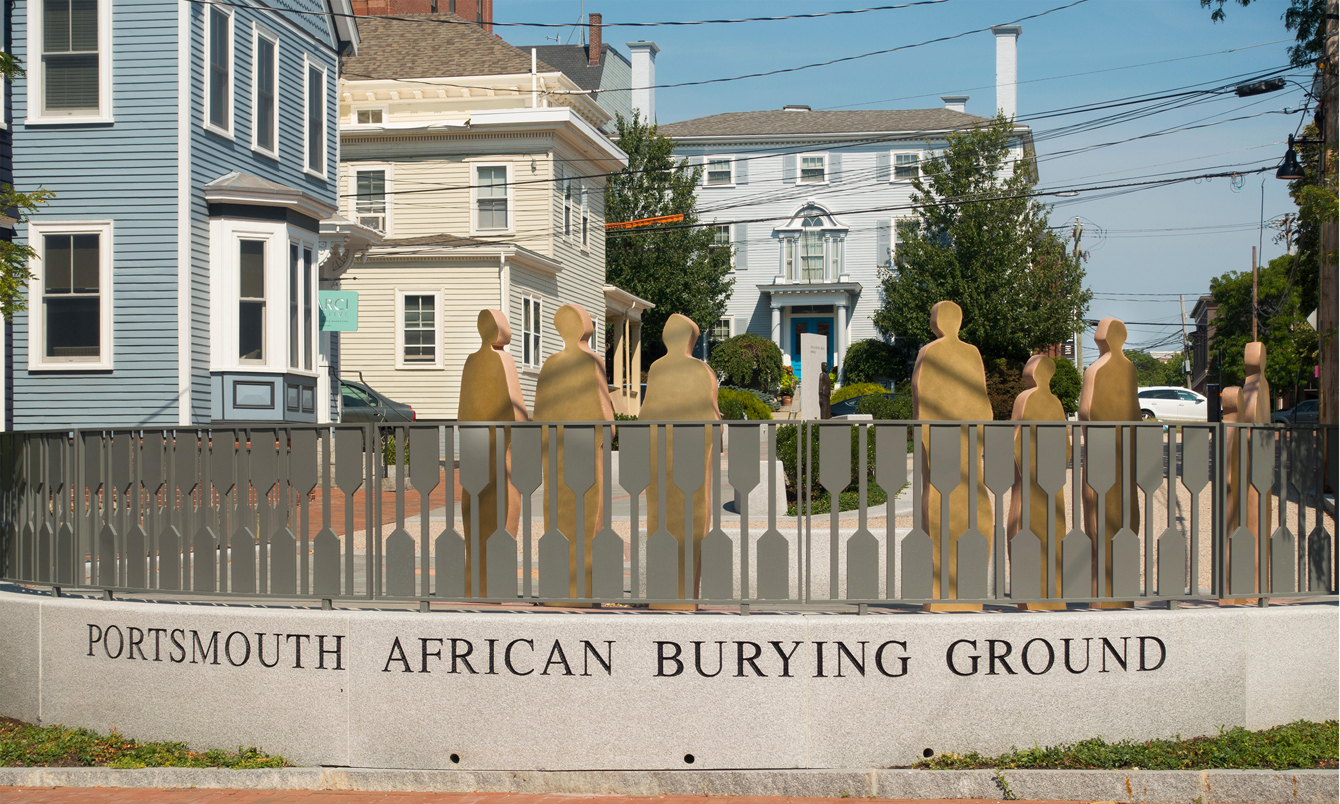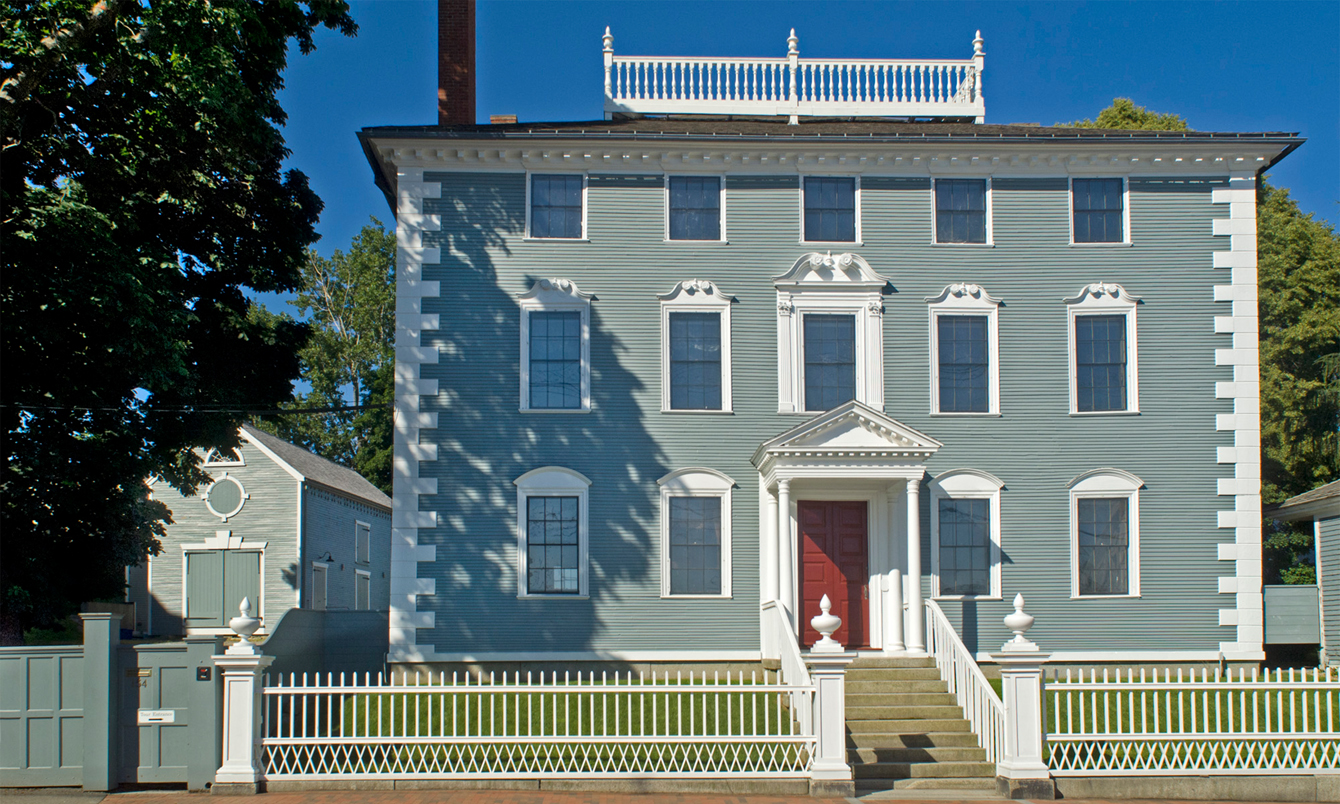The colonial port city of Portsmouth, New Hampshire, did not impose a tariff on enslaved labor, thus encouraging colonists to buy and sell African captives during the 17th and 18th centuries. New Hampshire’s constitution banned enslavement in 1783.
The cemetery for enslaved individuals was located at the edge of colonial Portsmouth. The earliest burials date from 1705, and the last from around 1803. As many as two hundred people were laid to rest there.
Although the burial ground originally covered a larger area, parts of it fell victim to public works excavation on Chestnut Street, and other parts were paved over.
The African Burying Ground Memorial Park is now the final resting place for 13 coffins and their unnamed remains, which were unearthed in 2003 and respectfully reinterred on May 23, 2015. Sculptural pieces, decorative tiles, seating, and historical information now complete the landscaped plaza.
The park is part of the Portsmouth Black Heritage Trail and the New Hampshire Black Heritage Trail.



